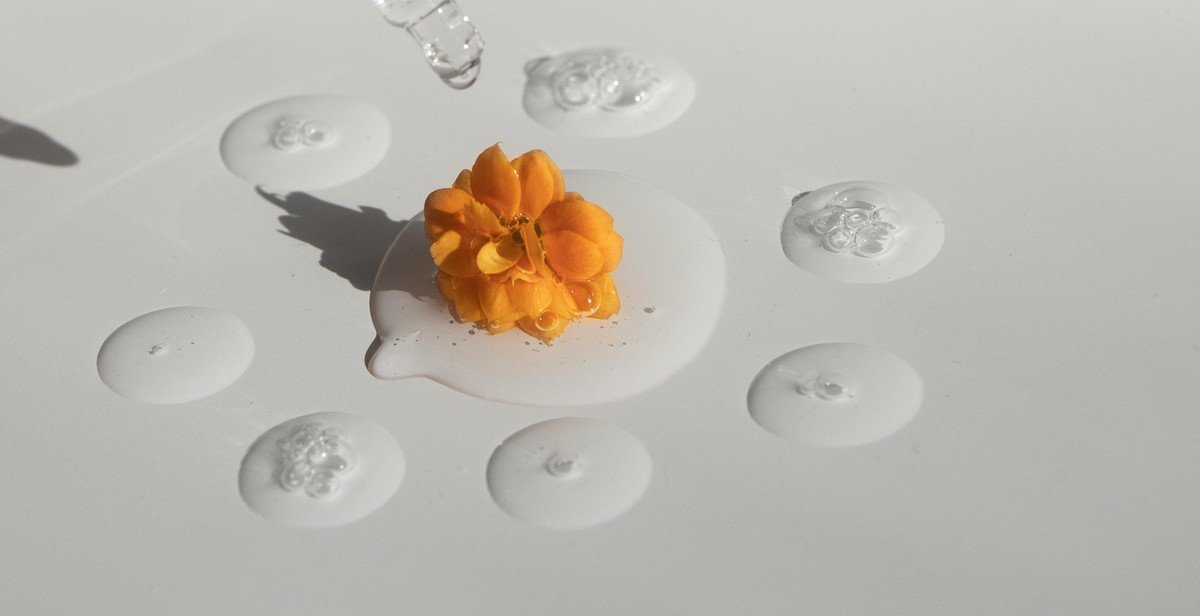Introduction: How to Whiten Teeth with Natural Home Remedies
Having a bright, white smile is something that many people desire. Not only does it improve confidence, but it can also make you appear more youthful and attractive. While there are many products on the market that claim to whiten teeth, they can often be expensive and contain harsh chemicals that may damage your teeth and gums over time.
That’s why natural home remedies for teeth whitening have become increasingly popular in recent years. These remedies are not only cost-effective, but they are also gentler on your teeth and gums than commercial products. Additionally, many of these remedies use ingredients that you likely already have in your kitchen.
Why Natural Home Remedies for Teeth Whitening?
There are several reasons why natural home remedies are a great option when it comes to teeth whitening:
- Cost-effective: Many natural remedies use ingredients that are already in your kitchen, making them a budget-friendly option.
- Gentle on teeth and gums: Unlike some commercial products, natural remedies are less likely to cause sensitivity or damage to your teeth and gums.
- No harsh chemicals: Natural remedies are free from harsh chemicals such as bleach, which can be harmful to your oral health.
- Easy to use: Most natural remedies are simple to prepare and use, making them a convenient option for busy individuals.
In the following sections, we will explore some of the most effective natural home remedies for teeth whitening that you can try at home.

Oil Pulling for Teeth Whitening
If you are looking for a natural way to whiten your teeth, oil pulling might be the answer. Oil pulling is an ancient Ayurvedic practice that involves swishing oil in your mouth for a few minutes each day. This practice is said to have a variety of health benefits, including teeth whitening.
What is Oil Pulling?
Oil pulling involves swishing oil in your mouth for 10-20 minutes each day. Traditionally, coconut oil was used for oil pulling, but other oils such as sesame oil, sunflower oil, and olive oil can also be used.
How to do Oil Pulling for Teeth Whitening
To do oil pulling, simply take a tablespoon of oil and swish it around in your mouth for 10-20 minutes. Spit the oil out and rinse your mouth with water. It is best to do oil pulling in the morning on an empty stomach.
Benefits of Oil Pulling for Teeth Whitening
Oil pulling can help to remove stains from your teeth and whiten them naturally. It is also said to have other benefits, including improving oral health, reducing bad breath, and promoting overall health and wellness.
- Removes stains from teeth
- Whitens teeth naturally
- Improves oral health
- Reduces bad breath
- Promotes overall health and wellness
If you want to try oil pulling for teeth whitening, start with just a few minutes a day and gradually work your way up to 10-20 minutes. Remember to spit the oil out and rinse your mouth with water afterwards. With regular practice, you may begin to see a brighter, healthier smile.

Baking Soda for Teeth Whitening
One of the most popular and effective natural remedies for teeth whitening is baking soda. Baking soda, or sodium bicarbonate, is a mild abrasive that can remove surface stains on teeth and help brighten your smile. Here’s how it works:
How Does Baking Soda Whiten Teeth?
Baking soda is alkaline, which means it can neutralize acids in the mouth that can cause tooth decay and discoloration. It also has a mild abrasive action that can help scrub away surface stains on teeth. When used as a teeth whitening treatment, baking soda can help remove stains caused by coffee, tea, wine, and other substances.
How to Use Baking Soda for Teeth Whitening
There are a few different ways you can use baking soda for teeth whitening:
- Mix a small amount of baking soda with water to make a paste. Apply the paste to your teeth with a toothbrush and brush for 2 minutes. Rinse thoroughly with water.
- Add a pinch of baking soda to your regular toothpaste before brushing.
- Mix baking soda with hydrogen peroxide to make a whitening mouthwash. Swish the mixture in your mouth for 1-2 minutes and spit it out. Rinse your mouth with water.
It’s important to note that baking soda should not be used as a teeth whitening treatment too frequently, as it can be abrasive and may damage tooth enamel with excessive use.
Precautions When Using Baking Soda for Teeth Whitening
When using baking soda for teeth whitening, it’s important to take the following precautions:
- Use baking soda in moderation, as excessive use can damage tooth enamel.
- Do not use baking soda if you have braces, as it can damage the brackets and wires.
- Do not use baking soda if you have gum disease or sensitive teeth.
- If you experience any pain or discomfort while using baking soda for teeth whitening, discontinue use and consult your dentist.

Turmeric for Teeth Whitening
Turmeric is a spice that has been used for centuries in cooking and traditional medicine. It contains a compound called curcumin, which has anti-inflammatory and antioxidant properties. Apart from its health benefits, turmeric can also be used to whiten teeth naturally.
How Does Turmeric Whiten Teeth?
The yellow pigment in turmeric, which gives curry its characteristic color, can also help to remove stains from teeth. The active ingredient, curcumin, has been shown to have a whitening effect by breaking down the biofilm that forms on the surface of teeth and reducing inflammation in the gums.
How to Use Turmeric for Teeth Whitening
To use turmeric for teeth whitening, mix a teaspoon of turmeric powder with enough water to form a paste. Apply the paste to your teeth using a soft-bristled toothbrush and leave it on for 5-10 minutes. Rinse your mouth thoroughly with water and brush your teeth as usual.
- You can also mix turmeric with coconut oil or baking soda for added benefits.
- Repeat this process once or twice a week for best results.
Precautions When Using Turmeric for Teeth Whitening
While turmeric is generally safe to use, there are a few precautions to keep in mind:
- Turmeric can stain clothing and surfaces, so be careful when applying the paste.
- Excessive use of turmeric can cause yellowing of the teeth, so use it in moderation.
- If you have sensitive teeth or gums, turmeric may cause irritation or discomfort. Stop using it if this occurs.
Overall, turmeric is a safe and effective way to whiten teeth naturally. Its anti-inflammatory and antioxidant properties make it a great choice for improving oral health as well.

Strawberries for Teeth Whitening
Strawberries are a natural and effective way to whiten teeth. They contain malic acid, which helps to remove surface stains on teeth and can also help to break down plaque. Additionally, strawberries are high in vitamin C, which can help to remove surface stains and brighten teeth.
How Do Strawberries Whiten Teeth?
The malic acid in strawberries helps to remove surface stains on teeth by breaking down the proteins that cause discoloration. Additionally, the vitamin C in strawberries can help to remove surface stains and brighten teeth.
How to Use Strawberries for Teeth Whitening
To use strawberries for teeth whitening, mash up one or two ripe strawberries and apply the mixture to your teeth using a toothbrush or your finger. Leave the mixture on your teeth for five minutes, then rinse your mouth with water and brush your teeth as usual.
- Use this method once a week to avoid damaging your tooth enamel.
- Be sure to rinse your mouth thoroughly after using strawberries for teeth whitening to remove any remaining sugar or acid.
Precautions When Using Strawberries for Teeth Whitening
While strawberries are generally safe to use for teeth whitening, there are a few precautions you should take:
- Do not use this method too frequently, as the acid in strawberries can damage your tooth enamel if used too often.
- If you have sensitive teeth, consult your dentist before using this method.
- Avoid using strawberries if you are allergic to them.
| Pros | Cons |
|---|---|
| Natural and effective | Can damage tooth enamel if used too frequently |
| High in vitamin C | May cause sensitivity in some people |
| Easy to use | May not be effective for deep stains |

Apple Cider Vinegar for Teeth Whitening
Apple cider vinegar is a natural home remedy that has been used for centuries to whiten teeth. It is a type of vinegar made from fermented apple juice and contains acetic acid, which has natural bleaching properties. When applied to the teeth, apple cider vinegar helps to remove stains and discoloration, resulting in a brighter, whiter smile.
How Does Apple Cider Vinegar Whiten Teeth?
Apple cider vinegar works as a natural teeth whitener in two ways:
- The acetic acid in apple cider vinegar helps to remove surface stains from the teeth, including those caused by coffee, tea, and wine.
- Apple cider vinegar also has antibacterial properties that help to kill the bacteria in the mouth that cause bad breath and tooth decay.
How to Use Apple Cider Vinegar for Teeth Whitening
To use apple cider vinegar for teeth whitening, follow these steps:
- Dilute the apple cider vinegar with water in a 1:2 ratio (one part vinegar to two parts water).
- Swish the mixture around in your mouth for about a minute.
- Rinse your mouth with water.
- Brush your teeth as usual.
You can use apple cider vinegar for teeth whitening once a day, but be careful not to use it too often or leave it on your teeth for too long, as it can erode the enamel and damage the teeth.
Precautions When Using Apple Cider Vinegar for Teeth Whitening
When using apple cider vinegar for teeth whitening, it is important to take the following precautions:
- Always dilute the vinegar with water before using it on your teeth.
- Limit the use of apple cider vinegar to once a day.
- Do not leave the vinegar on your teeth for too long, as it can erode the enamel.
- If you experience any pain or sensitivity, stop using the vinegar immediately and consult a dentist.
| Pros | Cons |
|---|---|
| Apple cider vinegar is a natural and inexpensive teeth whitening solution. | Overuse of apple cider vinegar can erode the enamel and damage the teeth. |
| The antibacterial properties of apple cider vinegar can help to improve oral health. | The taste and smell of apple cider vinegar may be unpleasant for some people. |
| Apple cider vinegar is readily available and easy to use. | Apple cider vinegar may not be as effective as professional teeth whitening treatments. |

Activated Charcoal for Teeth Whitening
Activated charcoal has become a popular ingredient in natural teeth whitening products due to its ability to absorb impurities and stains on the teeth’s surface. It is a form of carbon that has been treated with oxygen, creating millions of tiny pores between the carbon atoms, providing a large surface area for adsorption.
How Does Activated Charcoal Whiten Teeth?
Activated charcoal works by adsorbing surface stains and impurities on the teeth, resulting in a brighter and whiter smile. It also helps to balance the pH level in the mouth, preventing the growth of bacteria that can cause bad breath and tooth decay.
How to Use Activated Charcoal for Teeth Whitening
To use activated charcoal for teeth whitening, mix a small amount of the powder with water to create a paste. Apply the paste to your toothbrush and brush your teeth for 2-3 minutes. Rinse thoroughly with water and brush your teeth with regular toothpaste to remove any leftover residue. Use this method once or twice a week for best results.
Precautions When Using Activated Charcoal for Teeth Whitening
- Activated charcoal can be abrasive, so do not use it too frequently or brush too hard, as it may damage the enamel on your teeth.
- Activated charcoal may stain clothing and surfaces, so be careful when using it.
- If you have sensitive teeth or gums, consult with your dentist before using activated charcoal for teeth whitening.
| Pros | Cons |
|---|---|
| Effectively removes surface stains and impurities on teeth | May be abrasive and damage tooth enamel if used too frequently or brushed too hard |
| Helps balance pH level in mouth, preventing bad breath and tooth decay | May stain clothing and surfaces |
| Natural and safe alternative to chemical teeth whitening products | May not be suitable for individuals with sensitive teeth or gums |

Conclusion
Having a bright and white smile is something that everyone desires. While there are many teeth whitening products available in the market, they can be expensive and may have harmful chemicals that can damage your teeth and gums. Natural home remedies are a safe and cost-effective way to achieve a brighter and whiter smile.
From using baking soda and hydrogen peroxide to oil pulling and eating crunchy fruits and vegetables, there are several natural remedies that can effectively whiten your teeth. However, it is important to remember that these remedies may take time to show results and may not work for everyone.
In addition to these remedies, it is important to maintain good oral hygiene habits such as brushing twice a day, flossing and visiting the dentist regularly. Avoiding foods and beverages that stain your teeth such as coffee, tea, and red wine can also help keep your teeth white.
While natural remedies can be effective in whitening your teeth, it is important to consult with your dentist before trying any new treatment. Your dentist can also recommend professional treatment options such as teeth whitening or dental veneers.
With patience and consistency, you can achieve a brighter and whiter smile with natural home remedies. Give them a try and see the difference for yourself!
